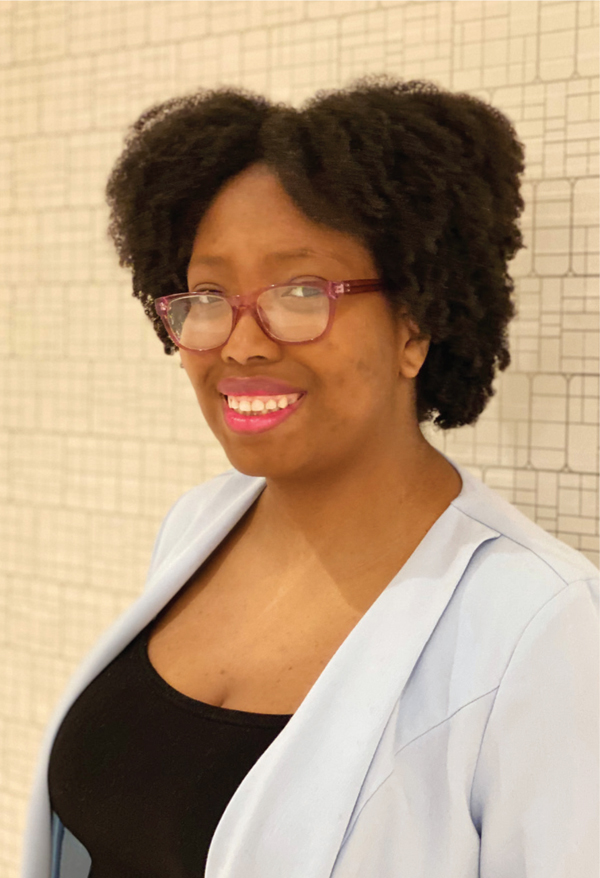Fobazi Ettarh | Movers & Shakers 2020–Change Agents
When Fobazi Ettarh became a librarian, the way her peers talked about work—"rhetoric about callings and spending your whole life dedicated to one thing"— sounded familiar. "I’m a pastor’s kid," she explains. At one conference, a panelist "point blank said that librarianship was their ‘sacred duty.’" Ettarh was uncomfortable with that extreme statement and how many agreed with it.
|
Award revoked at request of recipient in protest of the 2020 Library of the Year award. |

CURRENT POSITION
Undergraduate Success Librarian, John Cotton Dana Library, Rutgers University, Newark, NJ
DEGREE
Rutgers University, MLIS, 2014
FAST FACT
Ettarh is the author of Killing Me Softly, a game illustrating the impact of microaggressions
FOLLOW
@Fobettarh; fobettarh.github.io/Killing-Me-Softly/index.html
Photo by Elena Rosa Maris
Setting Boundaries
When Fobazi Ettarh became a librarian, the way her peers talked about work—"rhetoric about callings and spending your whole life dedicated to one thing"— sounded familiar. "I’m a pastor’s kid," she explains. At one conference, a panelist "point blank said that librarianship was their ‘sacred duty.’" Ettarh was uncomfortable with that extreme statement and how many agreed with it.
When she shifted into academic librarianship, a professor said no one goes into librarianship to make money; knowing you help the world should be enough. Ettarh was horrified, concerned that, on hiring committees, such an authority figure had no incentive to pay fairly and might think less of applicants who negotiated salary. Around her, she saw library workers being exploited because they love what they do. And those who love what they do but experience undercompensation, emotional labor, job creep, and burnout often feel shamed, as if the problem were lack of passion rather than systemic support.
Preparing for a conference on identity, agency, and culture, Ettarh coined "vocational awe." Afterwards, she fleshed out the idea, researching its origins in the field’s roots, and published on In the Library with the Lead Pipe.
Ettarh says vocational awe prevents the field from improving, because those who call out flaws are punished instead of heeded. And it prevents achieving inclusion goals, because people who need to care for family, maximize earnings, or have chronic illness or disabilities, as Ettarh does, don’t have the privilege to make "sacred duty" their sole priority. That’s why her next step is more research into how vocational awe impacts different types of libraries.
Add Comment :-
RELATED
ALREADY A SUBSCRIBER? LOG IN
We are currently offering this content for free. Sign up now to activate your personal profile, where you can save articles for future viewing









